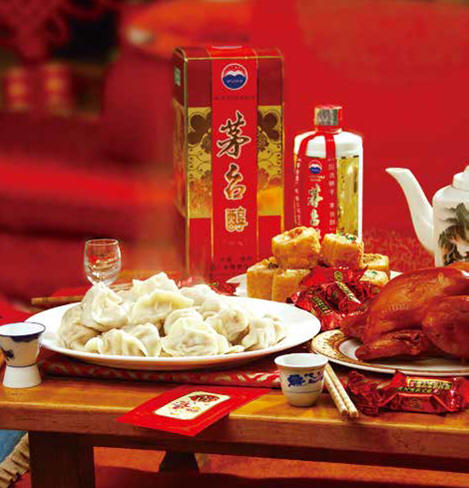
China, with its incredible economic significance, has become a key player in the global economy. Amidst the current global economic stagnation, it's attracting millions of professionals in pursuit of realizing their "Chinese Dream". Unlike one decade, or even five years ago, we now look to China, along with other emerging economies, to take up the slack of delivering global growth and help nurse the global economic recovery.
Although China is currently undergoing massive transformation, its' culture is still deeply rooted in 5000 years of history. To succeed in doing business in China, you'll have to do your homework to grasp the cultural differences, especially concerning how Chinese think and how they approach different business scenarios.
During my last Beijing visit, a colleague asked me: "Why is everyone so interested in whether or not I've eaten?" I laughed and went on to explain that Chinese enjoy friendly banter prior to getting down to business. Instead of the Western-style "How are you today?", or a polite discussion of the weather, Chinese ask if you've eaten. This question helps break the ice, putting both sides at ease in a warm-up for the next step of the social dance. The meal question merely serves to kick-start conversation and a simple, "I have, have you?", turns the tables and opens up the conversation.
Beyond the Great Wall
Perhaps because the routine inside factories can grow monotonous, or because their clients are often foreigners they rarely have direct contact with, professionals in the trade industry love to get to know you and understand the culture you live in. They're passionate to connect to the world beyond the Great Wall and are eager to cultivate long-term relationships. Don't be offended if people ask your age, marital status, or even how much you make, as such questions are often exchanged between locals. Next time you're asked the meal question, exercise your sense of humor and throw it back to your host with, "No, I haven't. Are you buying me dinner?", and watch their response. Meetings in China are often long, and the pace can be slow. It's not because work here is inefcient; it's a reffection of the way of doing business, coupled with the challenge of linguistic and cultural differences. Initial meetings are usually highlevel introductions of the companies you each represent, and entail discussions and explorations of shared business values so that you can establish and negotiate on a common platform.
You may find, at times, you're spending more time talking about your experiences in China and Chinese food then the business topic at hand. Coming from a Western culture where we may meet strangers and swiftly seal the deal, answering questions relating to your culture, even personal questions, may be off putting at first. But Chinese like to build trust and comfort by getting to know you before contracts are signed. As such, Chinese salespeople routinely wine-and-dine prospects ,and makes deals on the dinner table after few rounds of baijiu (Chinese liquor). Perhaps by the end of the night, when the tables are cleared and you've finished singing your last Spice Girls song, you'll have started good guanxi (relationships) with your Chinese counterpart.
Guanxi Pays
Guanxi simply means "relationship". The concept of building good relations with your stake holder is universal. In the context of international trade, having good guanxi with your Chinese partner is pivotal to your ventures' success. Building good guanxi may also entail social dances over more dinners, karaoke and perhaps even gifts from you the next time you're in town. Guanxi means you're becoming friends. Business relations bonded by personal connections strengthen trust and make potential conffict resolution much easier.
Your local connection is your access to local information, and often provides astute market forecasts and insights. For instance, I once had a Skype call with my Chinese counterpart whom I'd become friends with. We were commenting on spot pricing for steel when he quickly whispered he'd received word from his contacts pointing to a potential supply disruption. I ran the scenario with our analyst who proposed we purchase a few futures contracts to mitigate risk. Within two months the price of steel increased 15%. I sat in my chair feeling relieved and wrote on my To-Do List: Purchase more Johnny Walker for my friend.
When I first dove into the international business pool, I was not used to seeing emails from China pop up in my inbox at my 11am coffee break. This meant my Chinese counterpart was still awake at 2am Chinatime working. Later, when we finally met at one of the conferences, he told me he works from 9am to 2am every day. Not only did he have to work normal China hours managing local a‑ airs, he also had to work North American hours on business development.
I've now come to learn that many Chinese work long hours, even those not earning the most competitive salaries. Despite these challenges, almost everyone I encounter carries on full of optimism and hope.
The road to closing an international deal can be long and treacherous but the professionals I've worked with all exhibit great perseverance.
Growing up in Canada, I'm infused with both Chinese and Western culture and I'm privileged to be working in a cosmopolitan business arena that heightens my sensitivity to cultural differences and how they may impact working relationships.
Every one of my China visits has been a humbling experience, as never before have I been so thoroughly inspired by the people I've met and the business and life lessons I've learned. I hope all China adventurers find what they're looking for and I wish you all a safe and pleasant journey in China.





